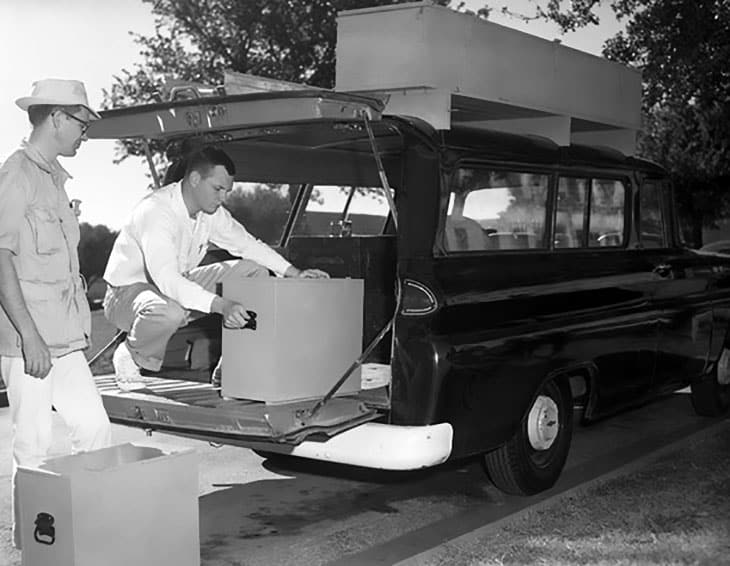Traveling out of town for a decent period involves packing a significant amount of gear. Whether you like hiking, camping, fishing, or hunting, you need to make the most out of every space your truck can provide to ensure you have everything you need. Effectively packing your camping equipment, personal supplies, tools, and other gear is more of an art as it involves carefully planning and organizing gear to fit perfectly in your truck.
There are two primary goals you want to achieve: space and weight. Every truck has a maximum load capacity. You must ensure your load is never above the maximum allowed load capacity. Balancing this weight is critical as it helps keep the vehicle sturdy when driving on rugged roads. You also need to make good use of the space available from roof rack to drawers and other storage spaces. This post covers tips and tricks you can utilize to pack your truck properly for any trip.
Create a Solid Packing Plan
Before you start loading your truck with gear and supplies, it pays to have a solid plan. Ideally, you want to list all the items you need in the truck and put all of them near the vehicle. If you’re carrying large bulky items like a bicycle, make sure you have a bike rack on your truck to tie it up there. You can also use a roof rack to carry other items like propane tanks and toolboxes. A packing plan helps you anticipate the challenges you’re likely to encounter and solve them before they become a headache. Your packing plan should include which items go first, depending on how you use them on your trip.
Pack the Important Stuff First
Sometimes, it’s not always possible to take everything you might want to use when packing for a long trip. You can have a spreadsheet of the list of things you need, including basics like food, clothes, cooking equipment, sleeping bags or your sleeping materials, camping tent, vehicle repair tools, and any other gear you will need based on the activities you intend to undertake on your trip.
Organize Your Load Based on How You Will Use it
You need to store bigger items first and move towards smaller ones. Placing the smaller ones first may obstruct the entrance, preventing you from packing big ones. Consider the items you will regularly use, such as food and water, and make sure they’re easy to access. If you have to stop and empty half of the truck just to get a flashlight, you have a lot of planning to do.
Quick stops should be precisely that, quick, easy, and stress-free. A well-organized vehicle means getting everything you need quickly to cook, set up camp, and put everything back without any challenges. For instance, your sleeping bag, mattress, camp chair, clothes, and food should be accessible and easy to remove from the vehicle without removing any bigger boxes, as you will be using these items daily. If you have many small items, you can always use boxes and drawers to prevent damage, contamination and improve safety.
Use Protective Equipment To Protect Your Traveling Gear from Damage
The last thing you want is to have to stop or find shade when it’s raining to prevent your gear from getting soaked during your trip. Going with your load exposed to the heat is risky, especially for frozen food.
If you have an open truck, consider investing in a tonneau cover that helps seal your truck bed from elements. Nowadays, you can find plenty of Chevrolet, Ram, Honda, Jeep, and Ford F150 tonneau that can protect your truck from harsh weather and improve style, security, efficiency, storage, and functionality. It would help if you also had padded boxes for storing fragile items and a cargo barrier to stop your gear from moving back and forth and injuring people. Even lightweight gear can kill someone when a vehicle is involved in an accident. You can use ropes to tie and secure some in place or push tubs and gear up against them.
Avoid Overloading
It’s pretty easy to overload without knowing, especially if you didn’t pack enough gear and have to purchase items throughout your trip. Your truck is designed to carry a specific maximum load. When you exceed, you create a dangerous situation for you and other drivers using the same tracks. Keep the weight low and avoid overloading. Remember, your insurance company may not pay for damages resulting from an accident involving an overloaded truck, and you will be in serious trouble if someone gets injured.
The more weight you put on your vehicle, the higher the center of gravity. That means the chances of tipping over increase dramatically when driving on uneven roads. Avoid loading your roof rack with unnecessary gear. Your roof rack is designed to carry about 165 pounds of a load, depending on the model. You can check your owner’s manual to know the exact roof loading capacity.
You also want to balance the heavy items in your vehicle to prevent an imbalance that can lead to tip-overs. If you’re traveling with other vehicles, share the load to save space and weight. This helps reduce fuel consumption and strain on your vehicle.

